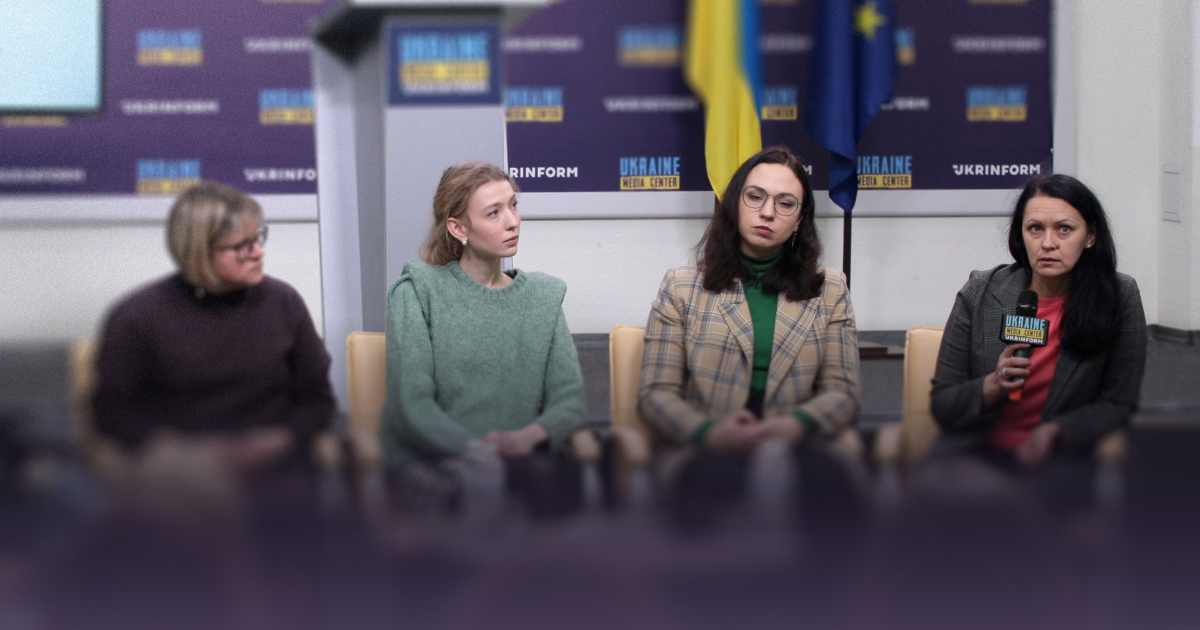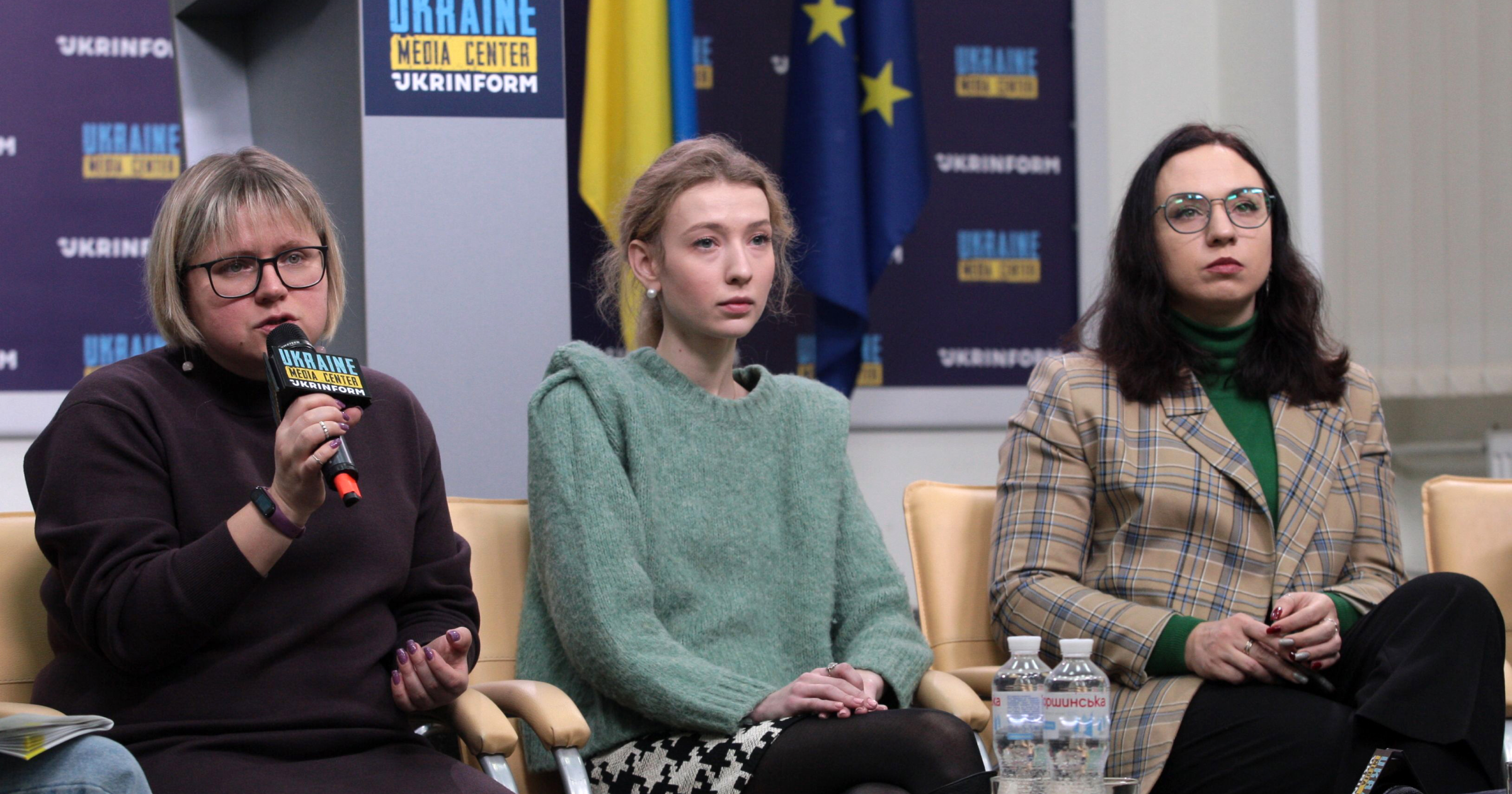How Russia deports Ukrainians: a report by human rights activists

The Ukraine 5 AM Coalition was formed the day after the start of Russia's full-scale invasion of Ukraine. The Coalition currently unites 31 non-governmental organisations and four individual experts who systematically document war crimes and crimes against humanity committed by Russia. On January 16, human rights activists presented a report on the deportation of Ukrainian citizens to the territory of Russia and the Republic of Belarus, the main task of which was to show deportation as a large-scale and systematic practice used by Russia.
In the article, you can read why the displacement of Ukrainians from the war zone to Russia is not an evacuation but a deportation, what awaits those who have not passed the so-called "filtration" and how Russia kidnaps children and gives them up for "adoption" and why this is genocide.
Filtration
The filtration measures of March 2022 took place to variable degrees in all the territories of Ukraine that were or still remain temporarily occupied.
The massive filtering process began in the Donetsk region — the Russians not only shut off all possibilities of leaving for the government-controlled territory and suggested going to Russia instead but also began checking people to see if they cooperated with the Ukrainian authorities.
Tetiana Katrychenko, the coordinator of the Media Initiative for Human Rights, says that the filtering can be split into three levels:
- checks in settlements or on the contact line;
- the so-called "camps" — the primary type of filtration, after which a person is either released or detained for further verification. People stand in lines for several days and even weeks. During the check, people are subjected to psychological and physical pressure, and there are also reports of executions;
- when certain suspicions arose, people were detained, interrogated, and then transported to places of detention, such as the Olenivka colony, where they had to spend 60 or 90 days under so-called "arrest." In particular, drivers who transported people from the temporarily occupied Mariupol were treated that way.
On the territory of Belarus, forcibly deported Ukrainians, mainly from Kyiv and Chernihiv regions, were placed in sanatoriums near Gomel and in a dormitory in the city of Mozyr, where they were also interrogated. A much larger number of Ukrainian citizens were taken to the territory of Russia.
Those who passed the "filtration" were issued migration cards, put on buses, and taken to Russia. For example, residents of Mariupol were brought to the nearest city, Taganrog.
Deportations
A distinction is made between deportation —- the forced relocation of civilians to the territory of another state — and forced displacement —- the forced relocation of people within the state of their citizenship. Coercion involves not only physical impact but also the threat of violence, harassment, detention, psychological oppression, abuse of power, and deliberate creation of an environment of danger.
"The deportation as it is, also involves other human rights violations and war crimes, such as torture, inhuman treatment, and "filtration measures" preceding deportation. Deportations did not end after Mariupol — this practice continues in the Kherson region and will be used in the future," says Aliona Luniova, the Human Rights Center ZMINA Advocacy Director.
Ukrainian citizens who find themselves on the territory of Russia, Belarus, or the temporarily occupied Crimea face lack of livelihoods, inability to exchange hryvnia or withdraw funds from bank cards; lack of clothing, hygiene products, medical care, and medicines; failure to contact relatives, get advice on further stay or leave the territory of Russia.
It is becoming one of the factors that make deported Ukrainian citizens "agree" to go to remote and depressed regions of Russia.
According to Russia, over 4.7 million Ukrainians are on its territory. The United Nations High Commissioner for Refugees reports 2.8 million citizens.
"FSB officers come to the temporary accommodation centres for Ukrainians and constantly monitor them, conduct fingerprinting (identification by fingerprint pattern - ed.) to track where Ukrainians are," Luniova says.

Deportations of children
According to various sources, 260 to almost 700 thousand underage Ukrainians are in Russia.
Kateryna Rashevska, a Regional Center for Human Rights lawyer, reports that most children are displaced with their legal representatives, but this does not diminish Russia's crime.
In Ukrainian boarding schools, at least 90% of children have relatives who are their primary caregivers. A significant number of children have developmental disorders or disabilities. At least half of these children have parents who can care for them, but the children were under round-the-clock medical supervision because they needed it. However, Russia deported 1,500 to 2,500 orphans to its territory.
"Ukrainian children have been deported to at least 57 regions of Russia — their geography is completely different. However, I want to put emphasis on Sakhalin, Astrakhan, Murmansk, and Dagestan because they are remote either geographically or culturally," the lawyer says.
At the beginning of the full-scale invasion, Russia deported the children under the guise of "evacuation" — one of the principles of evacuation is that there must be the consent of the state of citizenship of the children. Russia did not receive such approval.
During the summer and early September 2022, the list of grounds for the removal of children was supplemented by an alleged "vacation in camps," after which children are kept in Russia indefinitely "for educational purposes" and "for security reasons." According to Rashevska, there are such camps in Belarus as well.
According to international humanitarian law, an information certificate should have been drawn up for each child and sent to the International Committee of the Red Cross. This certificate is so detailed that it includes hair and eye colour so the child can be found and returned. Unfortunately, Russia has never handed over anything like this.
In September, Vladimir Putin issued a decree to start the process of medical check-ups, a method of health care for the population that involves detecting diseases at early stages. As a result, all children in the temporarily occupied territories were forced to undergo so-called "medical examinations," which concluded that at least 11,500 children needed to undergo medical check-ups.
"This is a serious threat because if there are at least theoretical shifts in the summer camps, then for medical reasons, a child can be kept in Russia until they reach the age of majority, or even beyond. According to Russian law, only the child is funded, while their parents remain in the temporarily occupied territory," says Kateryna Rashevska.
At least 400 Ukrainian children are already with Russian families. Rashevska currently assumes that the children can be returned only through the mediation of a third party - another state or an international organisation. "No one will return our children to us easily because, unlike prisoners of war, Ukraine has no one to exchange children for," the lawyer explains.
Law enforcement system
More than 60,000 alleged war crimes have already been recorded. Alina Pavliuk, a lawyer and analyst at the Ukrainian Legal Advisory Group, explains that no national law enforcement and justice system can cope with such a scale.
According to her, the priority should now be on direct recording, documenting, and understanding who the victims are, where they are and how they can get help.
A large number of people staying in Russia do not have identity documents that allow them to leave Russia.
"It is worthwhile to assess the capabilities of our justice system realistically. But unfortunately, most trials take place in the absence of the suspect or the accused. As a result, the Ukrainian legal system is limited in finding and detaining people who should be held accountable for crimes. Therefore, in addition to analysing the overall situation, the question of how to bring people to justice for committing crimes remains open," Pavliuk said.
Experts emphasise that Russia is blocking access to information and contacts with deported Ukrainians in every possible way. As a result, it is challenging to help gather facts about how and why people were taken away. Therefore, informal communication with local non-governmental organisations and initiatives is almost the only assistance channel for people.


